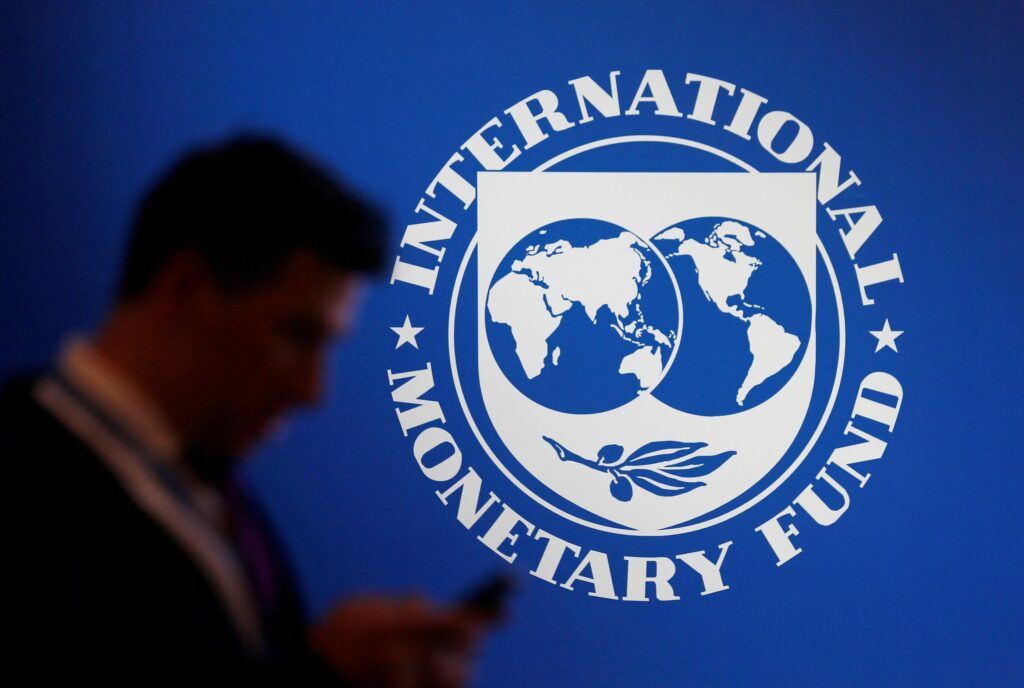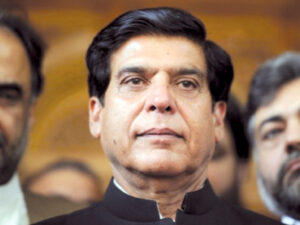ISLAMABAD:
Finance Minister Muhammad Aurangzeb on Tuesday said that Pakistan was keen to sign a large International Monetary Fund (IMF) programme and underscored the need for tackling the problems of low economic growth and high inflation through stabilisation policies.
The minister also said that the era of cash deposits by friendly countries and the rollovers of the external debt was over, and the country had to come out of the mindset of doing patchwork to deep-rooted economic problems.
In his first interaction with a group of journalists since taking oath as the minister, Aurangzeb indicated that the coalition government would not abandon the path to economic stabilisation and it stood ready to enforce the IMF prescription one more time.
“Macroeconomic stability needs permanency and for that Pakistan needs a large and longer duration IMF programme,” Aurangzeb said. However, he did not explain the duration of the programme and the actual size of the loan that Pakistan would be looking for its balance of payment support.
Aurangzeb’s statement came a day before an IMF team is scheduled to reach Pakistan for policy negotiations for the last loan tranche of $1.1 billion. The IMF team is arriving only for five days and the talks are expected to conclude on March 18th.
“We would be very keen to initiate discussions on the Extended Fund Facility [EFF] during the upcoming visit but the detailed discussions would take place during the spring meetings, said the minister, who would be traveling to Washington next month to attend annual IMF and World Bank meetings.
The finance minister said that there was a real sense of urgency and “we are in a good shape to complete this programme” and negotiate a new deal. He added that the government would also get the IMF assistance for the budget.
“I am quite positive that we are in a good stead to successfully conclude and complete the stipulations of the IMF for the second review, said Aurangzeb. He added that Pakistan would share a blueprint with the IMF on the new programme, but added that the discussions would take place in Washington.
The short duration of the IMF vision and the minister’s statement about finalising the new programme in Washington suggest that the upcoming IMF visit might only end in the announcement of a staff-level agreement for the completion of the second review of the current programme.
The Finance Secretary Imdadullah Bosal also said that the size of the loan programme was not final yet but Pakistan would be seeking a large programme. He added that the government was reviewing the possibility of taking an IMF environment facility, but added it would take time before it was matured.
“Pakistan’s last five finance ministers signed almost the same IMF programmes and until all those structural benchmarks are fully implemented, we would keep doing the same patchwork,” the finance minster added.
Inflation
Aurangzeb emphasised that a nuclear sovereign state “can no more run on a day-to-day patchwork”. He also said that the biggest problem was inflation but it could only be addressed through macroeconomic stability.
With the slowdown in the inflation rate, the interest rates would start reducing gradually from this fiscal year, he continued. But, he said, it was the prerogative of the Monetary Policy Committee (MPC) of the State Bank of Pakistan (SBP) to make such decisions. “It is difficult for the businesses to do business at the current rate [of 22%].”
He also underscored the importance of the Special Investment Facilitation Council (SIFC) for bringing foreign investment. He said that the old global order of deposits and loan rollovers was over and “now even friendly countries are asking for equity investments and seats at the board of companies”.
The finance minister hoped that the after the finalisation of the new programme, the foreign commercial loans would begin. Yet, he remained sceptical about tapping the international capital markets.
He said that the 100 days agenda was not just the proverbial, as the government was serious in implementing the things on a priority basis. “There is no magic wand that can take directly to economic growth,” he said. “The past attempts to spur growth without deep-rooted stabilisation ended up at external sector crises.”
Tax reforms
Aurangzeb said that the Federal Board of Revenue’s (FBR) reform would be implemented and the thrust would be an end-to-end digitisation for bringing transparency and ending leakages. He added that the data analytics teams, comprising young people would be placed in the FBR to maximise the usage of already available data of the taxpayers.
The FBR has long been claiming of having information about more than 52 million people, but this data has not been translated into taxes. The minister emphasized that the untaxed sectors like the wholesale, retail and agriculture had to be taxed, as there was a limit to putting more burden on the existing taxpayers.
Aurangzeb said that the salaried class was leaving the country and “we have to address the issue of the talent drain”. He added that the government would give a big push to the privatisation agenda and the Pakistan International Airlines (PIA) privatisation process would be taken to the finishing line.







